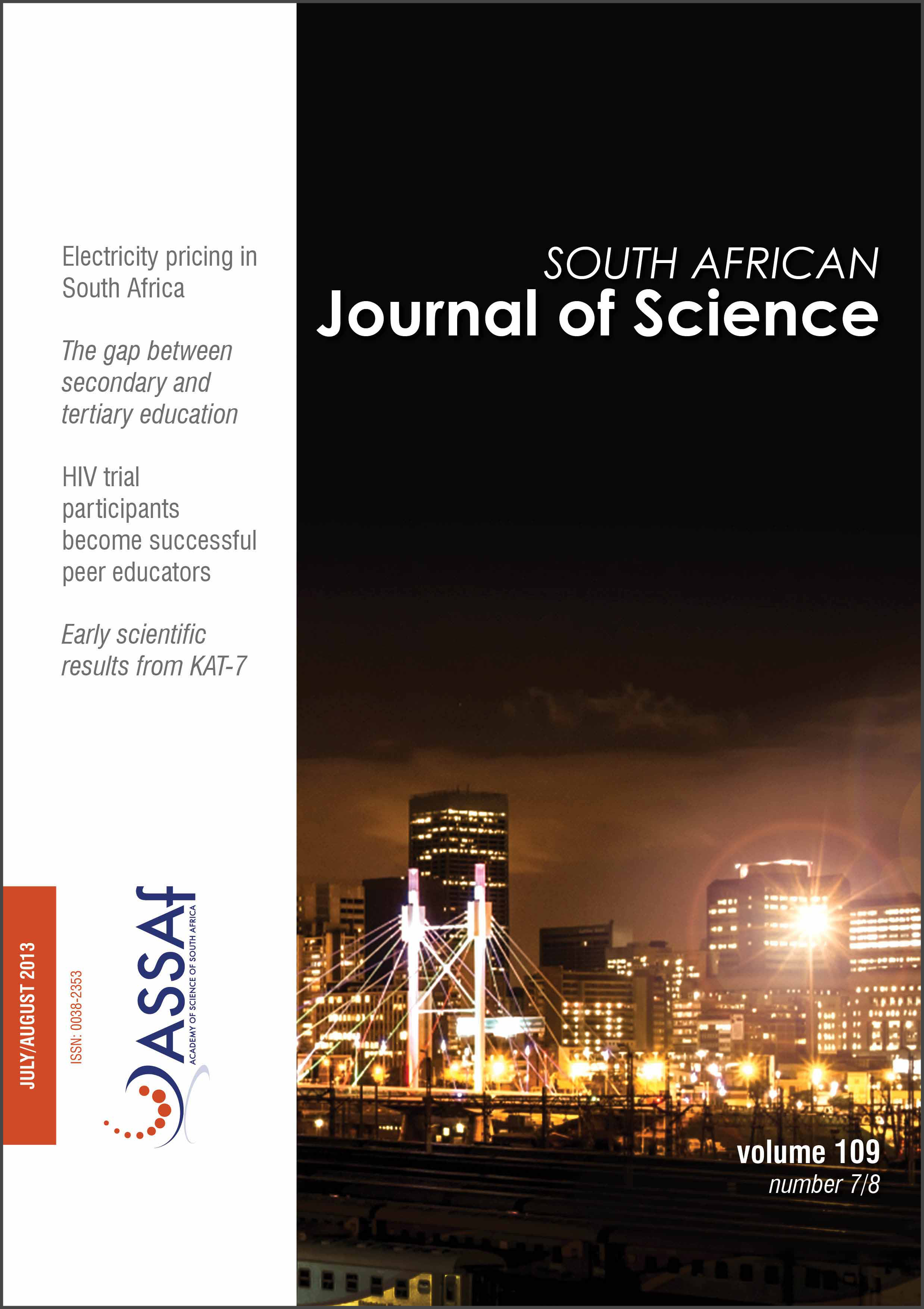Effect of farming activities on seasonal variation of water quality of Bonsma Dam, KwaZulu-Natal
DOI:
https://doi.org/10.1590/sajs.2013/20120052Keywords:
agriculture, eutrophication, dairy farming, physicochemical variablesAbstract
Agriculture has both direct and indirect effects on the quality of surface water and groundwater and is among the leading causes of water quality degradation, mainly as a result of the excessive use of agrochemicals. Water samples were collected in a selected catchment area (Bonsma Dam) in KwaZulu-Natal and analysed for physicochemical variables. The concentrations of most of the elements and total dissolved solids, as well as the pH and electrical conductivity values, met the water quality requirements for domestic, agricultural, livestock and aquatic ecosystem uses. However, the inlet streams feeding the dam were found to be eutrophic during the wet season. Analysis of nitrate in the water body of the study area indicated that agricultural applications of manure and fertilisers may be a potential source of nitrate contamination. Most elements were more concentrated in the dam during the wet season. The overall ionic conductivity values were also higher in the wet season, while the pH was lower. The outcome of this work links the concentrations of physicochemical variables to land use, agricultural practice and local geomorphology. Seasonal patterns in the concentration of physicochemical variables occur, as land use, rainfall and farming activities change seasonally, and these concentrations should therefore be determined periodically.
Published
Issue
Section
License

All articles are published under a Creative Commons Attribution 4.0 International Licence
Copyright is retained by the authors. Readers are welcome to reproduce, share and adapt the content without permission provided the source is attributed.
Disclaimer: The publisher and editors accept no responsibility for statements made by the authors
How to Cite
- Abstract 621
- PDF 429
- EPUB 164
- XML 232












.png)